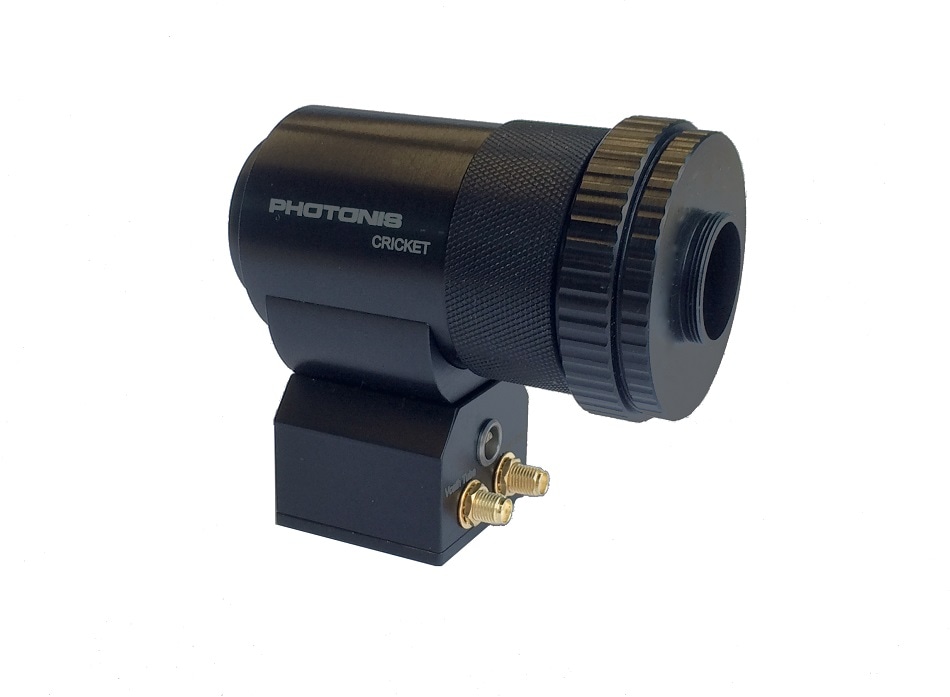Photonis introduces Cricket, a plug-and-play electro-optic adaptor that easily and cost-effectively adds intensified imaging capability to any scientific camera. Cricket is ideal for use in fluorescence lifetime imaging microscopy (FLIM) as well as in plasma and physics research, and corona discharge diagnostics. Cricket is available with a wide range of options that enable it to support 1μlx sensitivity, high speed imaging or single photon counting, depending on the needs of the application.

Cricket is a self-contained unit, equipped with C-mount connections that enable the user to simply connect to any scientific camera and attach to any lens or microscope to begin capturing intensified images. Cricket’s internal structure provides power to the embedded image intensifier and maintains proper alignment and focus to provide a full 18mm intensified image for analysis. Cricket supports detection ranges from 200 to 900 nm and can be used with most EMCCD, CCD, CMOS or sCMOS cameras with little or no additional hardware required.
In addition to providing an intensified image, the unit can also convert UV and NIR photons into green photons with emission characteristics that perfectly match the spectral response of a solid state camera.
Photonis offers a wide range of options for the Cricket, allowing the unit to be customized for a specific application. Cricket can be equipped with an optional external gating and a high speed electronic shutter that can support 3ns or 50ns temporal resolution.
The Photonis image intensifiers included with Cricket can also be customized. Microchannel plates within the embedded image intensifier can be configured to heighten sensitivity to 1μlx, support single photon counting, or optimize for high speed applications. P43 or P46 phosphor options can also be chosen to support the application.
Researchers looking at narrow spectral ranges can order Hi-QE photocathodes in the image intensifier, which increase the quantum efficiency of the detector by up to 50% when compared to standard S20 or S25 photocathodes. Hi-QE options include UV, Blue, Green or Red.
Cricket provides researchers with a versatile yet simple tool to augment existing laboratory or industrial cameras without significant complexity or expense. To learn more or to speak with an application engineer for your custom configuration, please visit us at Photonics West booth # 5247 or our web site at www.photonis.com.